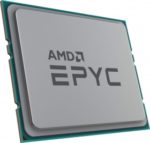A major challenge in quantum computing has been short lifespan of memory, or coherence, held in qubits, quantum’s version of a bit. To date, information is stored in qubits for microseconds or milliseconds. But a team of researchers at the Argonne National Laboratory and the University of Chicago have reported two advances to overcome common […]
Exascale: ALCF and Intel to Host Aurora Learning Paths Series
The Argonne Leadership Computing Facility (ALCF) in partnership with Intel will host the ALCF Aurora Learning Paths learning seriesto explore use of oneAPI and Data Parallel C++ (DPC++), Intel’s open-source implementation of SYCL, to demonstrate methods to achieve performant, portable code across five platforms available on the Intel Devcloud. There are four modules within the […]
Argonne Selects Altair Workload Manager for Polaris, Aurora
Simulation software company Altair has announced that Argonne National Laboratory will utilize Altair PBS Professional workload manager across the organization’s HPC systems at the Argonne Leadership Computing Facility (ALCF) – including the Polaris and Aurora supercomputers – to accelerate research in science and engineering. PBS Professional – which replaces the ALCF’s in-house Cobalt workload manager […]
Argonne Names 5 New Distinguished Fellows
Argonne National Laboratory has named for 2021 five new Argonne Distinguished Fellows, the lab’s highest title: Pete Beckman, Lois Curfman McInnes and Rick Stevens from the Computing, Environment and Life Sciences (CELS) directorate; Jeffrey Elam from the Energy and Global Security (EGS) directorate; and Stephen Gray from the Physical Sciences and Engineering (PSE) directorate. Of […]
Preparing for Exascale: Aurora to Drive Brain Map Construction
The U.S. Department of Energy’s Argonne National Laboratory will be home to one of the nation’s first exascale supercomputers when Aurora arrives in 2022. To prepare codes for the architecture and scale of the system, 15 research teams are taking part in the Aurora Early Science Program through the Argonne Leadership Computing Facility (ALCF), a […]
Argonne Picks AMD EPYC CPUs for Polaris
Santa Clara — Aug. 30, 2021 — AMD today announced that the U.S. Department of Energy’s (DOE) Argonne National Laboratory has chosen AMD EPYC processors to power the Polaris supercomputer (see earlier coverage), which will prepare researchers for the forthcoming exascale HPC system at Argonne called Aurora. Polaris will use 2nd Gen EPYC processors and then upgrade to 3rd Gen […]
How Machine Learning Is Revolutionizing HPC Simulations
Physics-based simulations, that staple of traditional HPC, may be evolving toward an emerging, AI-based technique that could radically accelerate simulation runs while cutting costs. Called “surrogate machine learning models,” the topic was a focal point in a keynote on Tuesday at the International Conference on Parallel Processing by Argonne National Lab’s Rick Stevens. Stevens, ANL’s […]
New York Power Authority Turn to ALCF’s Theta Supercomputer for Climate Change Planning
The largest state public power entity in the U.S., the New York Power Authority (NYPA), is addressing critical, long-term planning challenges by assessing how its ability to generate, transmit and deliver electricity may be affected by climate change. For the first time, NYPA is evaluating its comprehensive climate risk with the help of the U.S. Department […]
ALCF GPU Hackathon and Computational Performance Workshop: Prepping Researchers for Current & Future HPC
As the Argonne Leadership Computing Facility (ALCF) continues its transition to deploying and operating supercomputers powered by graphics processing units (GPUs), training researchers to use the powerful new resources for science is becoming increasingly important. Last year, the facility expanded its Theta supercomputer with GPUs to provide a dedicated resource for COVID-19 research as well […]
Argonne Scientists Using DL to Visualize X-ray Data in 3D
JULY 26, 2021 – A team of Argonne scientists has leveraged artificial intelligence to train computers to keep up with the massive amounts of X-ray data taken at the Advanced Photon Source. Scientists are using artificial intelligence to train computers to process the reams of data produced by the Advanced Photon Source. Computers have been able […]










